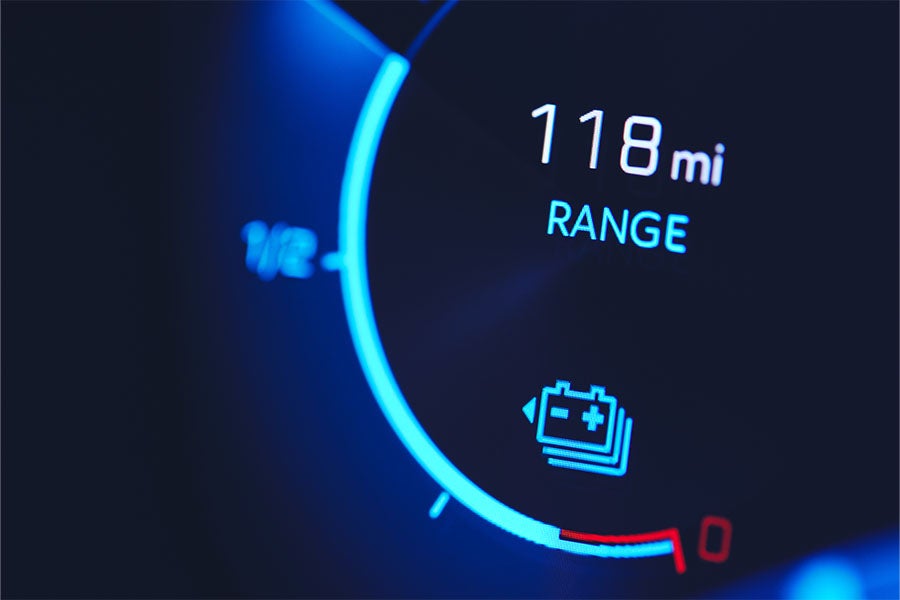Energy saving advice
Electric vehicle range: How far can an electric car go?
13 Nov 2024 • 5 minutes

Energy saving advice
13 Nov 2024 • 5 minutes

One of the biggest questions around electric vehicles (EVs) is about their range and how far they can go.
In the first generation of EV’s, you could say that this question was justified as the technology wasn’t available, which created something we know as “range anxiety”. However, with new models and choice – it's fair to say that improvements have been made.
In this article we’ll cover everything you need to know - from how far an electric car can go on one charge, to the stigma around range anxiety and just what you can expect from the battery life of an EV.
In the simplest terms – the range of an EV means how many miles your battery will allow you to travel on a single charge.
The emergence of electric cars has had many positive impacts on the car industry, but it's fair to say that there’s been concerns about the range they can travel compared to other options – this is what is known as ‘range anxiety’.
However, these days many electric vehicles are now capable of reaching much bigger ranges compared to previous models. Of course, this will vary depending on the make and model of EV you go for as well as the average speed that you travel.
The range of an EV can be impacted by many factors, from the weather, your style of driving or the type of road you’re driving on. We’ve put together 5 of the most common things that will have an impact.
From 2009 to 2019, 100 miles was considered to be a good range for an electric vehicle.
These days EV models have improved, so much so that some models have a range between 400 to 500 miles. Obviously, this will depend on the make and model of EV you choose – as with any vehicle or appliance, the market can differ quite a lot so it’s always worth shopping around and doing some research.
The average range for the latest electric vehicle on today’s market stands between 150 and 300 miles. So, whether you’re a casual driver or you travel longer distances, you should be able to use an EV to fit around your lifestyle.
Most EVs will use a lithium-ion battery, which means they become less effective over time. However, it’s thought that EV drivers can expect their EV to last upwards of 10 years or around 100,000 miles or more of use.
Hopefully this article has given you some food for thought if you’re in the market for an electric vehicle. If you fancy some extra reading, we’ve got a variety of similar articles that you may find of interest.
If you’re looking to install an EV charger at your home, we’ve teamed up with BOXT to bring you fast EV charging from the comfort of your sofa, with transparent fixed prices and an effortless installation service.
Answer a few simple questions and get a free quote today.
Our help & advice articles cover Plumbing, Home heating, Electrical, Energy-saving and Home maintenance.